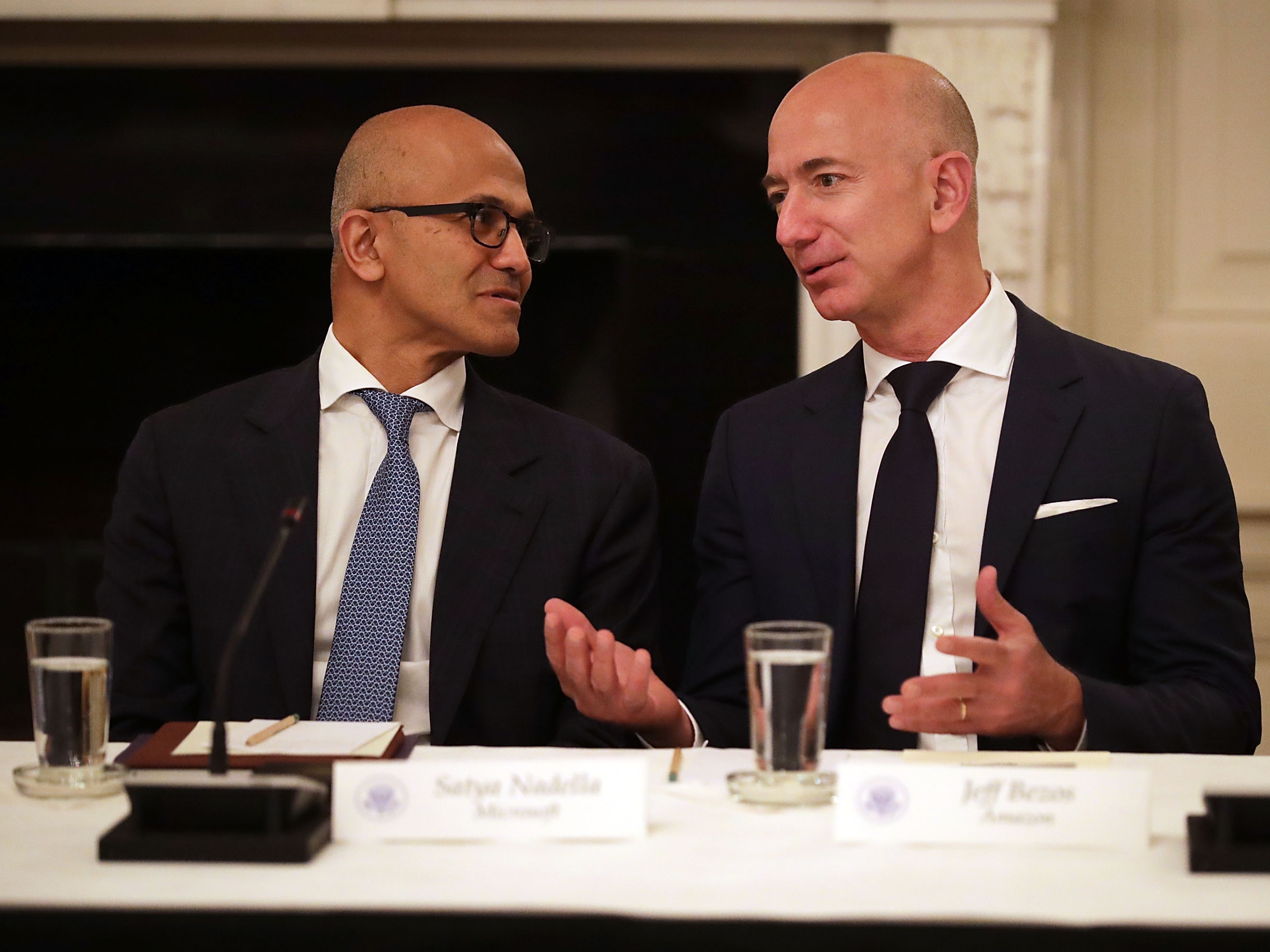- Amazon poached more Microsoft executives from 2015 to 2017 than any other tech company, CNBC reports, citing the data-collecting startup Paysa.
- Microsoft is known for churning out quality employees, but while other tech giants took two (Apple and eBay) or five (Google) execs in those three years, Amazon managed to poach 30.
- Proximity most likely has a lot to do with the migration, but Amazon’s innovation and compensation are said to also be deciding factors, especially for employees who have already spent years at Microsoft.
What do the names Dave Treadwell, Marc Whitten, and Dirk Didascalou, have in common? They’re all former Microsoft employees who – as of 2016 – had become vice presidents at Amazon.
Microsoft’s 40-year-old reputation for churning out marketable employees definitely precedes it, but while other tech giants like Apple, eBay, and Google have attracted some Microsoft talent, Amazon has poached more by a long shot.
From 2015 to 2017, 30 executives (director and above) left Microsoft to work for Amazon, CNBC’s Eugene Kim reported this week, citing the data-collecting startup Paysa. Just five went to Google, the next-leading company to poach from Microsoft, according to Kim’s report.
CNBC pointed to a few factors that could contribute to Amazon’s drastically higher number. From an outsider’s perspective, it could be as simple as the fact that the e-commerce giant is having a bit of a moment: Its stock price has more than doubled in two years, and it seems to have a stake in almost every industry.
From a Microsoft employee's standpoint, Amazon's location is most likely a big draw for anyone looking for a change, since its offices are about a 30-minute drive west of Microsoft's headquarters. Amazon's employee base has been growing quickly as its stock skyrockets, so opportunities to switch to a new and conveniently located company have been plentiful.
CNBC also noted that the two companies had begun competing in similar areas (e.g., smart assistants and cloud computing), suggesting Amazon simply seemed more appealing to some.
"Amazon is seen as more exciting, more at the edge - the creative innovator that has disrupted every market," Michael Useem, a management professor at the Wharton School of Business, told CNBC, adding that more of his MBA graduate students put Amazon at the top of their list than did just a few years ago.
It doesn't hurt that Amazon's success has also allowed it to attract employees with signing bonuses, as seen by data pulled from Blind. The anonymous workplace app found incoming Amazon employees were more likely to receive a bonus than employees at most other tech companies, including Microsoft.

